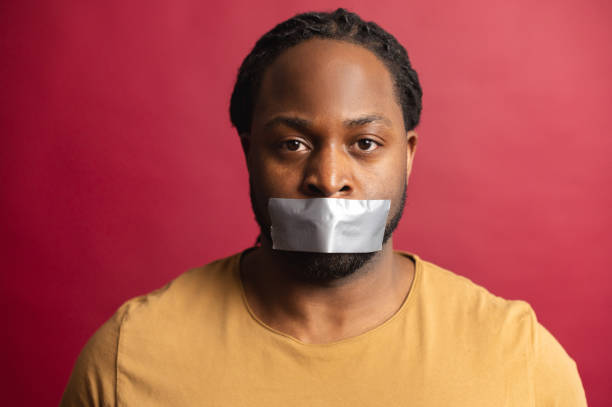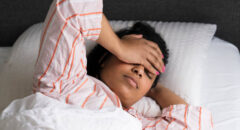
Scroll through TikTok, and you may see #MouthTapping trending, with users swearing by the latest trend of people taping their lips shut at bedtime. Experts warn that this practice could be dangerous.
What is mouth taping and why is it so popular?
The purpose of mouth taping is to keep you from breathing through your mouth at night. The idea is that by tapping your mouth, you will train your body to breathe through your nose instead.
The reasons given for the mouth-taping trend include trying to achieve beauty sleep.
“I tape my mouth shut every single day,” one woman said on TikTok. “Sleeping properly is really important to anti-aging and looking and feeling your best.”
One woman said she doesn’t remember why she started taping her mouth shut at night.
“Truth be told, I don’t know. I saw on TikTok and I can’t remember what the benefits were. But it helps me stay asleep,” she said, according to the CNN report Wednesday.
RELATED: 5 Tips To Stop Snoring TONIGHT!
One of those benefits is avoiding the problems that come along with mouth breathing, such as dry mouth, snoring, low oxygen concentration in the blood, dental conditions such as bleeding gums and cavities, high blood pressure and sleep apnea. These can increase your risk of drowsiness throughout the day as well as your risk of cardiovascular diseases.
“The common (mis)perception is that if you open your mouth, you can get more air into your lungs. It’s actually the reverse,” Dr Steven Y. Park, an ENT physician, tells Stylist. “When you open your mouth, the tongue base rotates back, narrowing your throat. So at night, if you open your mouth inadvertently, your airway narrows and you’ll snore more or go on to have apneas.”
@thecognitivecorner Me all night: 😷 #tiktoktherapists #mouthtaping ♬ original sound – Simone Saunders
Why nasal breathing is better
“How you breathe – fast or slow, deep or shallow, mouth or nose – will have an impact on your body,” explains Dr. Katharina Lederle, head of sleep health at sleep program Somnia. “Nasal breathing produces nitric oxide, which then is inhaled into the lungs. There, it helps to increase lung capacity to absorb oxygen as it widens the airways and blood vessels, which can then take on more oxygen. This also plays a role for blood pressure regulation, which is better in nose breathers.”
What’s more, there are several other benefits to nasal breathing while you sleep. These include balancing out the pH levels in your mouth, preventing dental decay, decreasing your chance of snoring, preventing your sinuses from drying out by lubricating your nostrils, and making the air you breathe more humid, helping with chronic lung diseases such as asthma.
RELATED: The Worst Sleep Position for Your Body
Why mouth tapping is dangerous
Although this is a pretty long list of benefits and explains why so many people have tried the trend, the science behind this trend is lacking.
“If you have obstructive sleep apnea, yes, this can be very dangerous,” sleep specialist Dr. Raj Dasgupta told CNN.
“There is limited evidence on the benefits of mouth taping and I would be very careful — and even talk to your health care provider before attempting it,” adds Dasgupta, an associate professor of clinical medicine at the University of Southern California Keck School of Medicine.
Not everyone who has obstructive sleep apnea knows it. People with the sleep disorder stop breathing repeatedly during the night. More than 1 billion adults worldwide between the ages of 30 and 69 alone likely have the condition, according to a 2019 study. Millions are undiagnosed.
RELATED: Drooling While You Sleep: The Symptom You Should Pay Attention To
Alternatives to mouth taping
Anyone interested in this trend should first be evaluated for obstructive sleep apnea, Dasgupta advises.
“Once obstructive sleep apnea is ruled out completely, then we can call it snoring,” he says. “Also, there are many other options to address snoring beside mouth taping, such as nasal strips, nasal dilators and mouth [and] throat and tongue exercises.”
You can help prevent mouth breathing in a safer way by not sleeping on your back, he adds.
Causes of mouth breathing include allergies, colds, a deviated septum in the nose and nasal polyps. In children, the cause may be enlarged adenoids or tonsils, according to the Mayo Clinic in Rochester, Minn.
An ear, nose and throat specialist or sleep specialist can also help you work through solutions.
“These issues should be addressed and evaluated first before mouth taping. In my opinion, taping your mouth shut is not likely to help you sleep better,” Dasgupta concludes.









